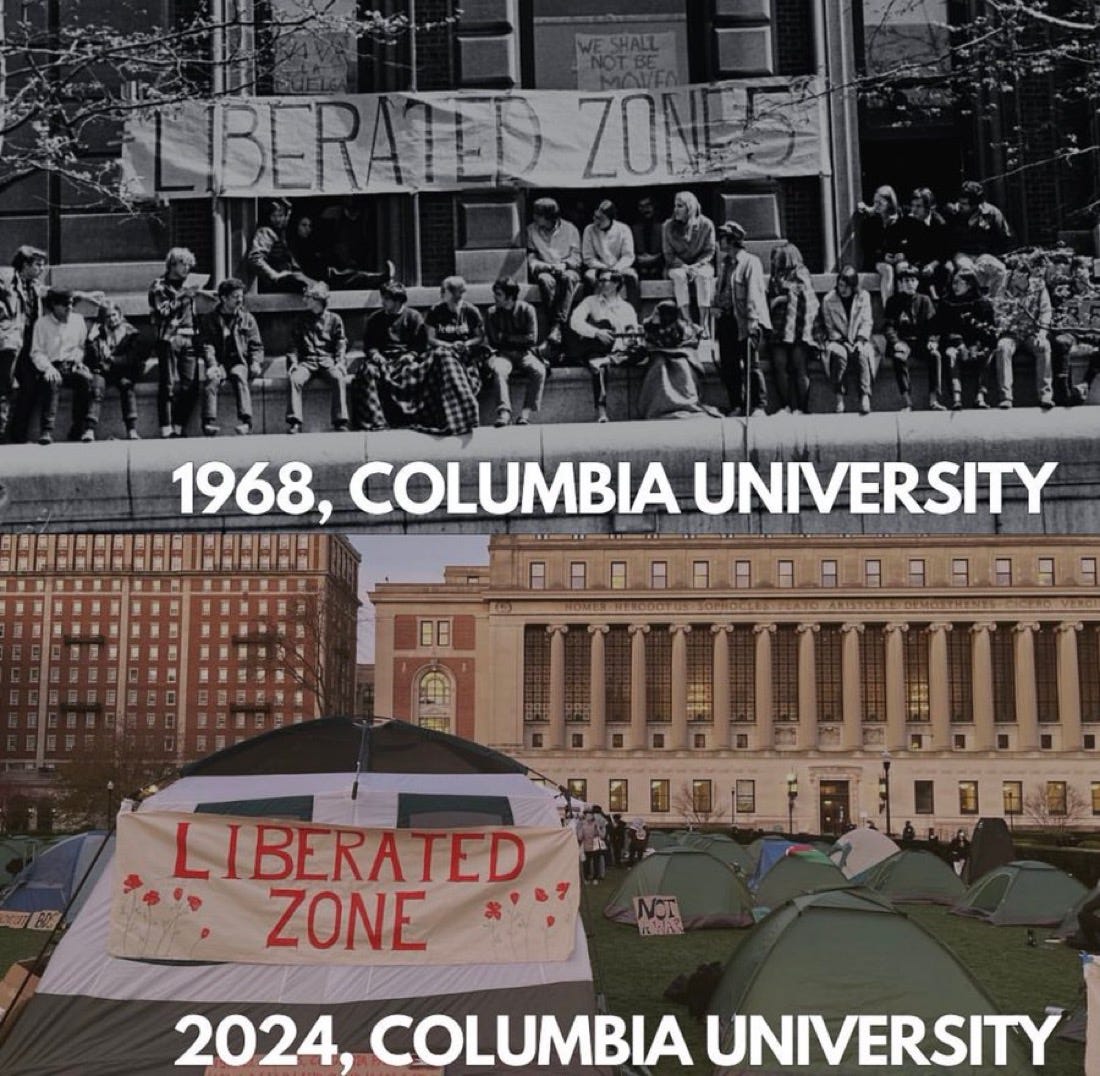Trump's War on Students is Here — And Columbia is Leading the Surrender
Columbia University—once a symbol of academic freedom—has bowed to an administration that tolerates free speech only when it serves its own interests.
The war on students has begun. Not a metaphorical war, not a cultural war, but an actual, government-backed, police-enforced campaign to silence those who dare to stand against genocide. Columbia University—once a symbol of academic freedom—has bowed to an administration that tolerates free speech only when it serves its own interests.
Last week, Columbia expelled a Jewish student, Grant D. Miner, for protesting Israel’s war in Gaza. Read that again. A university that claims to protect Jewish students expelled one for opposing genocide. History will struggle to explain this moment.
But this is bigger than any one student. Across the country, students exercising their First Amendment rights are met with threats, arrests, and deportations. Mahmoud Khalil, a Palestinian graduate student at Columbia, was kidnapped—yes, kidnapped—by Immigration and Customs Enforcement (ICE) for organizing against a U.S.-backed genocidal war.
The Columbia Crackdown
On March 8, plainclothes ICE agents stormed Khalil’s university housing and detained him while his 8-month-pregnant wife filmed the officers who insisted Mahmoud was resisting arrest when the video shows he wasn’t. He is now being held in a Louisiana detention center, a familiar purgatory for immigrants targeted by the state.
Columbia’s response? Silence.
Interim President Katrina Armstrong released a statement acknowledging ICE’s presence on campus but failed to mention Khalil’s arrest. The message was clear: students who protest, especially non-citizens, should watch their backs.
Faculty at the Journalism School pushed back, condemning the administration’s complicity in “threats against political speech.” They revealed what many already suspected—Columbia had warned international students and faculty to avoid covering the protests.
When The New York Times reported that Jelani Cobb, the Journalism School’s dean, told students, “Nobody can protect you. These are dangerous times,” the quote became a rallying cry. Some saw it as a warning to stay silent. But Shubhanjana Das, the Journalism School’s student government president, clarified that Cobb’s words were taken out of context. He wasn’t discouraging students—he was admitting the university’s limits in protecting them from federal retaliation.
The chilling effect remains. Columbia has created an environment where students—especially international ones—fear that their activism could cost them their education, their careers, or even their ability to stay in the country.
Keep reading with a 7-day free trial
Subscribe to Out Loud with Ahmed Eldin to keep reading this post and get 7 days of free access to the full post archives.






